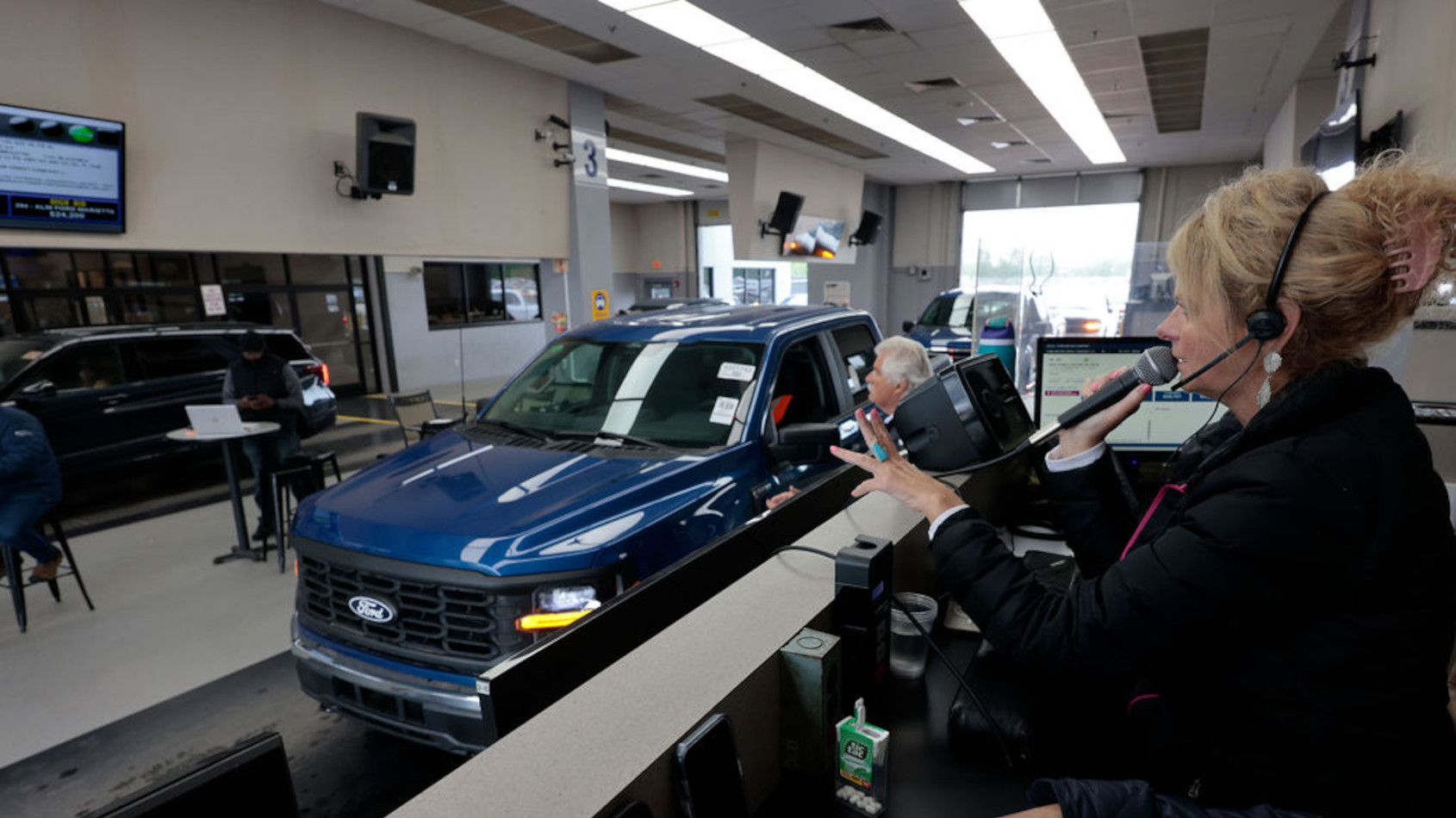Wholesale vehicle values slip from June, but maintain year-over-year strength

Wholesale auction sale at Cox Automotive's Manheim Detroit location. Image courtesy of company.
By subscribing, you agree to receive communications from Auto Remarketing and our partners in accordance with our Privacy Policy. We may share your information with select partners and sponsors who may contact you about their products and services. You may unsubscribe at any time.
Conversion rates at auction remain strong and values are still beating year-ago figures, but wholesale prices slowed month-over-month in July, as the market began to see a bit more volatility.
Those are but a few of the wholesale used-vehicle market happenings noticed by analysts at Black Book and Cox Automotive, which released their respective monthly used-car price indices this week.
Starting with Black Book, its Used Retention Index came in at 146.5 for July, which was up 1.0% year-over-year but fell 1.1% from June, on a seasonally adjusted basis.
“The wholesale market continued to experience accelerating declines throughout July, following a similar trend that began in June,” Black Book vice president of data & analytics Laura Wehunt said in an analysis.
“While seasonal depreciation is expected during this time of year, the pace of decline in July exceeded historical norms,” Wehunt said. “Despite a 1.1% month-over-month drop in the Black Book Retention Index, the Index remains up 1% year-over-year, indicating overall strength relative to last year.
“We’re closely monitoring key performance indicators such as days to turn that are beginning to increase, while auction conversion rates are holding steady, consistently in the high-50% range,” she added.
Subscribe to Auto Remarketing to stay informed and stay ahead.
By subscribing, you agree to receive communications from Auto Remarketing and our partners in accordance with our Privacy Policy. We may share your information with select partners and sponsors who may contact you about their products and services. You may unsubscribe at any time.
Over at Cox Automotive, its Manheim Used Vehicle Value Index came in at 207.4 for July, up 2.9% from July 2024 but down 0.5% from June, when adjusting for mix, mileage and seasonality.
Unadjusted, wholesale values were up 3.0% from July 2023 but fell 1.4% from June, Cox said.
In July, the average daily sales conversion rate at auction was an unseasonably high 56.9%, Cox said, beating June by 0.1% and up by more than 5 percentage points from the average the last three Julys (51.6%).
“Wholesale appreciation trends have continued to be a bit more volatile this year as tariffs have stirred demand in used markets for customers worried about price increases,” Cox Automotive senior director of economic and industry insights Jeremy Robb said in an analysis.
“The Manheim index has spent the last five months bouncing higher or lower against the previous read, as price changes are felt more acutely with lower levels of inventory on the ground. We are starting to see some of the new Model Year 2026 vehicles, and as that mix grows, we will get a better hint of the increases car makers are trying to pass along to consumers,” Robb said.
“But both new and used retail sales have remained relatively healthy, and when you couple that with tighter inventory levels at Manheim, we generally have pretty solid demand at the auction.”


